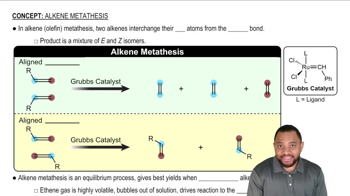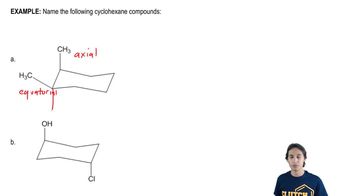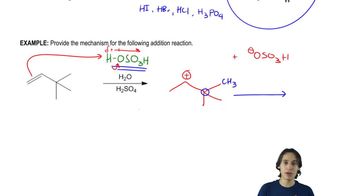Predict the product(s) that would result when the alkenes shown here are allowed to react under the following conditions: (iv) H2SO4 , H2O
(b)

 Verified step by step guidance
Verified step by step guidance Verified video answer for a similar problem:
Verified video answer for a similar problem:



 6:32m
6:32mMaster General properties of acid-catalyzed hydration. with a bite sized video explanation from Johnny
Start learning